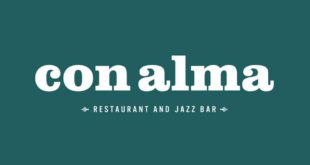Listening Spaces To Host Music, Technology and Culture Exploration Event
Boombox. Walkman. Discman. iPod. iPhone.
Over the past decade or so, how has technology impacted the way you listen to music?
A project under the Center for the Arts in Society’s (CAS) Media Initiative called “Listening Spaces” is investigating just that – and the overwhelming influence technology has had on our personal interactions with music.
The project’s organizers, Richard Purcell, assistant professor of English, and Richard Randall, assistant professor of music theory, are organizing a daylong event to start a conversation on these issues.
Free and open to the public, “Listening Spaces: 21st Century Explorations of Music, Technology and Culture” will combine talks from invited speakers and workshops to find out what we do with music, where we get our music, how and why we share music and how and why we recommend music.
Speakers include:
- Jonathan Sterne, Department of Art History and Communication Studies, McGill University
- Trebor Scholz, Department of Culture and Media Studies, The New School
- Graham Hubbs, Department of Philosophy, University of Idaho
- Larissa Mann, Department of Media Communications and Culture, New York University
Following the talks, the audience will break into groups for discussions on:
- Public/Private Listening – What is the value of “live” music to you? How important to do you think it is to see a performance? What’s the value of listening to music communally versus privately?
- Acquiring Music – How has the experience of purchasing music changed for you over your lifetime? Where do you normally get music recommendations and what source or sources do you find the most reliable?
- Utility of Music – What kinds of activities do you normally perform while listening to music? Why does certain music accompany certain tasks? How do you listen to this music? Do you think music can be used coercively or as a weapon?
- Playlists and Mixtapes – Can a collection of songs tell a story? If so, then how does a collection of songs tell a story?
- Musical Meaning – In what ways/for what reasons do you give music (songs?) extra-musical meaning? In what ways do you try to integrate or respect the author’s or composer’s intended meaning?
- The Technology of Listening – How important are listening formats to you? (kinds of file extensions, vinyl, cassette tapes, reel to reels, CDs, etc….) What kind of technologies (software/hardware) do you use to play music?
The event will be held on Friday, October 19, 2012 from 11 a.m. – 5:30 p.m. in the College of Fine Arts’ Frank-Ratchye STUDIO for Creative Inquiry and Alumni Hall.
Along with CAS, the STUDIO for Creative Inquiry is sponsoring this event.
For more information on Listening Spaces, visit www.hss.cmu.edu/pressreleases/pressreleases/listeningspaces.html.
For more information on the Center for Arts in Society, visit www.cmu.edu/cas/.
Stay connected with CMU’s Dietrich College of Humanities and Social Sciences on Twitter and Facebook.
Other sources of Carnegie Mellon news include the university news service website and the Carnegie Mellon Today magazine.
Contact Shilo Rea, Director of Public Relations at shilo@cmu.edu or (412) 268-6094.

